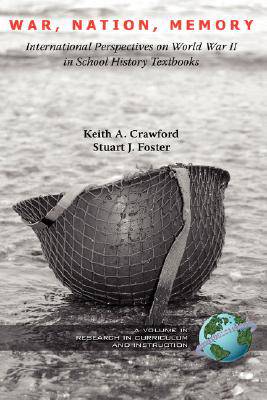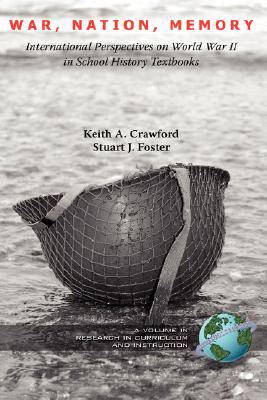
- Afhalen na 1 uur in een winkel met voorraad
- In januari gratis thuislevering in België
- Ruim aanbod met 7 miljoen producten
- Afhalen na 1 uur in een winkel met voorraad
- In januari gratis thuislevering in België
- Ruim aanbod met 7 miljoen producten
War, Nation, Memory
International Perspectives on World War II in School History Textbooks (Hc)
Keith A Crawford, Stuart J FosterOmschrijving
The Second World War stands as the most devastating and destructive global conflict in human history. More than 60 nations representing 1.7 billion people or three quarters of the world's population were consumed by its horror. Not surprisingly, therefore, World War II stands as a landmark episode in history education throughout the world and its prominent place in school history textbooks is almost guaranteed. As this book demonstrates, however, the stories that nations choose to tell their young about World War II do not represent a universally accepted "truth" about events during the war. Rather, wartime narratives contained in school textbooks typically are selected to instil in the young a sense of national pride, common identify, and shared collective memory. To understand this process War, Nation, Memory describes and evaluates school history textbooks from many nations deeply affected by World War II including China, France, Germany, Japan, USA, and the United Kingdom. It critically examines the very different and complex perspectives offered in many nations and analyses the ways in which textbooks commonly serve as instruments of socialisation and, in some cases, propaganda. Above all, War, Nation, Memory demonstrates that far from containing "neutral" knowledge, history textbooks prove fascinating cultural artefacts consciously shaped and legitimated by powerful ideological, cultural, and sociopolitical forces dominant in the present.
Specificaties
Betrokkenen
- Auteur(s):
- Uitgeverij:
Inhoud
- Aantal bladzijden:
- 228
- Taal:
- Engels
- Reeks:
Eigenschappen
- Productcode (EAN):
- 9781593118525
- Verschijningsdatum:
- 12/11/2007
- Uitvoering:
- Hardcover
- Formaat:
- Genaaid
- Afmetingen:
- 156 mm x 234 mm
- Gewicht:
- 498 g

Alleen bij Standaard Boekhandel
Beoordelingen
We publiceren alleen reviews die voldoen aan de voorwaarden voor reviews. Bekijk onze voorwaarden voor reviews.









